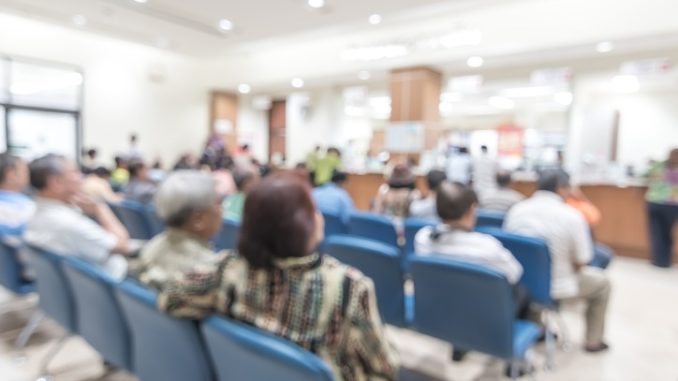
Recent media reports say more than 11m patients have waited more than three weeks for a GP appointment since prime minister Boris Johnson promised to ‘drastically reduce’ waits. Is this claim accurate?
On 5 January, the Sunday Times reported that ’11m patients have endured waits of more than three weeks to see a GP since Boris Johnson pledged to eradicate such delays’.
The story was picked up by other media outlets including specialist healthcare publications.
Where did the headline figure come from?
NHS Digital publishes data monthly on appointments in general practice. The widely-reported 11m headline figure comes from adding up appointments that took place more than three weeks after they were booked in the months after Mr Johnson promised to reduce waits.
Data is available up to November 2019 – and 11.3m appointments in general practice were delivered more than three weeks after they were booked in August – November 2019.
However, there are three major caveats that mean the claim that 11m patients have waited more than three weeks to see a GP since July cannot be drawn from the NHS Digital figures.
Firstly, the data added together to reach the 11.3m figure include both GP appointments and appointments with other practice staff, such as bookings with a practice nurse for routine asthma checks. Secondly, the figures do not differentiate between genuine delays and appointments booked in advance, and finally the figures relate to appointments, not patients – so the same person booking a regular appointment in advance could account for many appointments.
The second point is acknowledged in the Sunday Times story, but not in several of the follow-up versions published elsewhere.
What are the facts?
Analysis of the full data available – confirmed by NHS Digital – shows that, of the 11.3m appointments in general practice between August and November 2019 that took place more than three weeks after booking, just 3.9m were appointments with a GP – a third of the figure widely reported.
A total of 7.3m of these appointments were with ‘other practice staff’, and for the remaining handful it is ‘unknown’ whether the appointment was with a GP or someone else.
To put this in context, over the four-month period in question just over 52m appointments with GPs took place across practices that returned data – meaning the proportion of GP appointments delivered more than three weeks after booking was just 7%.
Meanwhile, GPs say that a huge proportion of appointments that take place more than three weeks after booking were simply booked ahead.
BMA GP committee chair Dr Richard Vautrey said: “The data is not collected to help say definitively how many of these longer times between booking and appointments are waits for routine appointments or effective advanced booking, but it’s likely that most would be the latter.
“This means follow-up appointments after an initial consultation, planned review appointments for long-term conditions or non-urgent problems, or may indeed be appointments booked with a request to see a specific GP, who the patient would rather wait to see rather than accepting the much earlier appointment offered with another GP or healthcare professional.”
Wessex LMC’s chief executive Dr Nigel Watson said that as many as 60-70% of appointments with practice nurses were booked ahead, and that this could often involve booking three weeks or more in advance. Numbers of appointments booked three weeks or more before they took place could also be pushed up by practices routinely inviting patients with long-term conditions to attend a clinic in a few weeks’ time, he added.
Don’t forget to follow us on Twitter, or connect with us on LinkedIn!

Be the first to comment